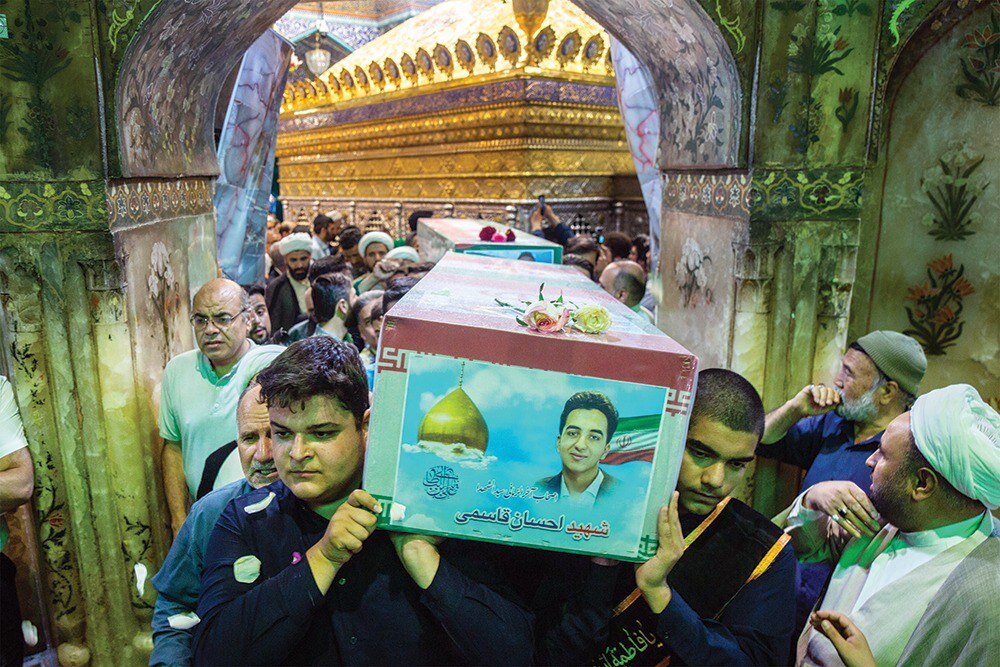'I gave up my son, will give up my wealth too. Build missiles to hit the heart of Tel Aviv'
Father of Ehsan Qassemi, 16-year-old victim of Israel's war on Iran, asks military to use his deceased son's savings to fight the Zionist regime

TEHRAN – For Israel and the U.S., the war on Iran was all but sure to rack the political system, get the disaffected population on the streets, and eventually bring about the collapse of the Iranian government.
That explains why they decided to undercut the very negotiations Donald Trump had been wanting for years, attack Iran while the country was getting ready to attend a sixth round of talks, and send a clear message to the world: Americans are not to be trusted. They could launch an aggression against you any second, no matter how committed you stay to diplomacy and cooperation with international bodies, which in Iran’s case had been the IAEA.
Analysts believe Iran did in fact demonstrate remarkable and unprecedented success when it comes to the way it managed to maintain its political and military cohesion. A number of Iran’s most senior military officials and nuclear scientists were assassinated in the initial hours of the war. Shortly after, those in politics received calls from Israeli agents, who told them that they should leave the country if they don’t want to get killed along with their family members.
Experts now say they did not expect the Islamic Republic to manage the crisis so effectively. Leader of the Islamic Revolution Ayatollah Seyyed Ali Khamenei personally took charge at the war room, appointed new commanders within hours, and deployed them to the battlefield. Retaliation began soon, with the first barrage of Iranian missiles raining on the occupied territories on the first day of the war. At least 22 waves of missile and drone attacks ended up pummeling Israel, leaving behind a large trail of destruction across the occupied Palestinian lands, a reality Israelis had never had to endure despite having waged war across the region since 1948.
Furthermore, other senior Iranian officials like the president, parliament speaker, and judiciary chief continued to heed their duties and connect with the public in person, even though they had already been targeted in a failed Israeli attack while holding a trilateral meeting.
From the beginning of the war, what was more evident than the fact that the Islamic Republic was going to hold it together was that Iranians were not going to rally behind Netanyahu. The Israeli Prime Minister issued a message on the first day of the war, telling Iranians that his fight was not with the “people”, and that they should “rise up” and ensure their “freedom”. It's unclear why it didn't occur to him that the Iranian people would find it extremely difficult to trust a convicted war criminal responsible for the deaths of over 60,000 Palestinians in the past 20 months. In Iran, Netanyahu ended up murdering around 1,000 people in the span of 12 days, the majority of whom were civilians, including women and children.
Netanyahu's actions fostered not support or empathy among the Iranian public, but unprecedented hatred for the Israeli regime and its patrons. This sentiment was on full display this week when the father of a 16-year-old boy killed in Israeli airstrikes on Qom stated on Iran's national TV that he wanted the government to use the money he had saved up for his son’s future to fight Israel. “I had planned to sell a piece of land to provide for my son's future. Now, I want to donate that land's value to the government. I don't know how many missiles that money can produce, but even if it's enough for just one, I want that missile used to strike the heart of Israel."
Leave a Comment